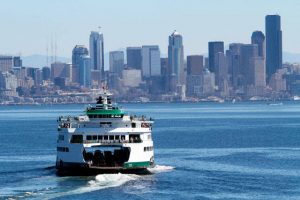Write a blog that hyper-links your research on the characters in GGRW using at least 10 pages of the text of your choice.
Pages 57-64, 68-72 of Green Grass, Running Water by Thomas King
I find King’s use of naming and references in Green Grass, Running Water to be both enriching and a challenge for my reading experience. It’s almost like starting a movie from halfway through and constantly needing to pause ask the people around you what it all means. The effect of this is that we are not simply granted access to these other worlds King creates but invited to learn about them. We could choose to read the words on the page or we could choose to undergo a deep, complex, and confusing history lesson that challenges what we think we know. These histories, as King shows us, are not just events of the past but are ongoing and have an impact on the daily lives of Indigenous peoples. His interweaving of creation stories and more present-day stories that are loaded with references reveal the significant role that religion and colonization to this day.
Wooden Knee
Lionel goes to Salt Lake City to help out his supervisor, Duncan Scott, give a paper at a conference on Indian Education. When Lionel is in Salt Lake City, “The occupation of Wooden Knee was in its second month […]” (King 55). I assumed Wooden Knee was a reference to either a place or event, however, I did not know the details of it. I looked up “Wooden Knee” on google and learned that it is referring to the Wooden Knee Massacre of 1890 where 150-300 Native Americans were murdered by U.S. army troops in South Dakota. This massacre attempted to shut down organized resistance against assimilation and reservation life, however, in 1973, American Indian activists reoccupied the site. After reading about the Wooden Knee Massacre, I now understand King means American Indian activists have been reoccupying this site for two months. With this reference, King is asking us to recognize both the history of the massacre and the present-day resistance.
George Morningstar
The name George Morningstar comes up in a conversation between Lionel and Norma about Lionel finding work: “Look at your sister. She makes her own luck. What about George Morning Star? […] What about George Morningstar, he used to beat the hell out of her” (King 57). According to Jane Flick’s reading guide, this name refers to “Custer,” the “Son of Morning Star” or “Child of the Stars” that was “the name given to George Armstrong Custer by the Arikaras in Dakota territory” (146). Flick explains that King wants us to recognize the importance of this name, as “Latisha even liked his name. It sounded slightly Indian, though George was American. Best of all, he did not look like a cowboy or an Indian” (King 131-32). Still a bit unsure of the meaning of the name George Morningstar, I looked it up on google. I didn’t find anything besides various people’s obituaries. Once I looked up Son of Morning Star instead, I learned that this is the name of a television show based on Evan S Connell’s bestseller about events leading up to the battle of Little Bighorn. King’s references are thus not always straightforward but multilayered. He wants us to do the work of looking up multiple names and events and grasp a fuller understanding of history.
Dead Dog Cafe
Although I have never heard the stereotype that Indigenous peoples eat dogs, I was able to pick up on King’s reference to tourists’ desire to consume the exotic other. King plays with this stereotype by showing how Indigenous peoples can take advantage of it for financial gain. At the Dead Dog Cafe, Latisha “sells hamburger and tells everyone it’s dog meat” (King 57). Flick says that it “Also refers to starving Indians having to eat their dogs” and is “Possibly a play on Nietzsche’s assertion that “God is Dead” (149). When searching “Dead Dog Cafe” on google, I learned that this became a radio show that was “irreverent, political and sometimes breathtakingly politically incorrect. And funny. Very funny”. The show apparently had several segments, for instance, “Gracie’s Authentic Traditional Aboriginal Recipes, including puppy stew, fried bologna, and Kraft Dinners,” or “The Authentic Indian Name generator, featuring three wheels that could automatically create names like Stewart Coffee Armadillo or Rosemarie Clever Tuna”. It is interesting to see how King’s stories and names play out beyond the novel.
Apples and Fry Bread
King’s references to food are rich with stories and history. Apples, as we know, point to Genesis, while fry bread, according to Smithsonian magazine, “links generation with generation and also connects the present to the painful narrative of Native American history” (Miller). Frybread is made out of cheap ingredients given to Native Americans by the United States government when forced to walk 300 miles from Arizona to New Mexico. Today it is seen by some as a powerful symbol of “Native pride and unity” (Miller). In Green Grass, Running Water, First Woman says “there’s plenty of good stuff here. We can share it” (King 69). King is pointing to the significance of frybread in some Indigenous cultures and how it is a food that can represent sharing and unity.
I hope you all find this information helpful for your experience of reading Green Grass, Running Water, and I’m excited to learn from your posts!
Works Cited
“The Dead Dog Café Comedy Hour.” Academic Dictionaries and Encyclopedias, 2010, enacademic.com/dic.nsf/enwiki/950771.
“Home | Rewind with Michael Enright | CBC Radio.” CBCnews, CBC/Radio Canada, www.cbc.ca/radio/rewind/dead-dog-cafe-comedy-hour-1.2801276).
Flick, Jane. “Reading Notes for Thomas King’s Green Grass Running Water.” Canadian Literature 161-162. (1999). Web. April 04/2013.
Hudson, Myles. “Wounded Knee Massacre.” Encyclopædia Britannica, Encyclopædia Britannica, Inc., 17 Jan. 2020, www.britannica.com/event/Wounded-Knee-Massacre.
Julius. “Dead Dog Cafe – Socialist Action – Canada.” Socialist Action – Canada, 30 Jan. 2014, socialistaction.ca/tag/dead-dog-cafe/.
King, Thomas. Green Grass Running Water. Toronto: Harper Collins, 1993. Print.
Miller, Jen. “Frybread.” Smithsonian.com, Smithsonian Institution, 1 July 2008, www.smithsonianmag.com/arts-culture/frybread-79191/.
“Son of the Morning Star.” IMDb, IMDb.com, 3 Feb. 1991, www.imdb.com/title/tt0102962/.


